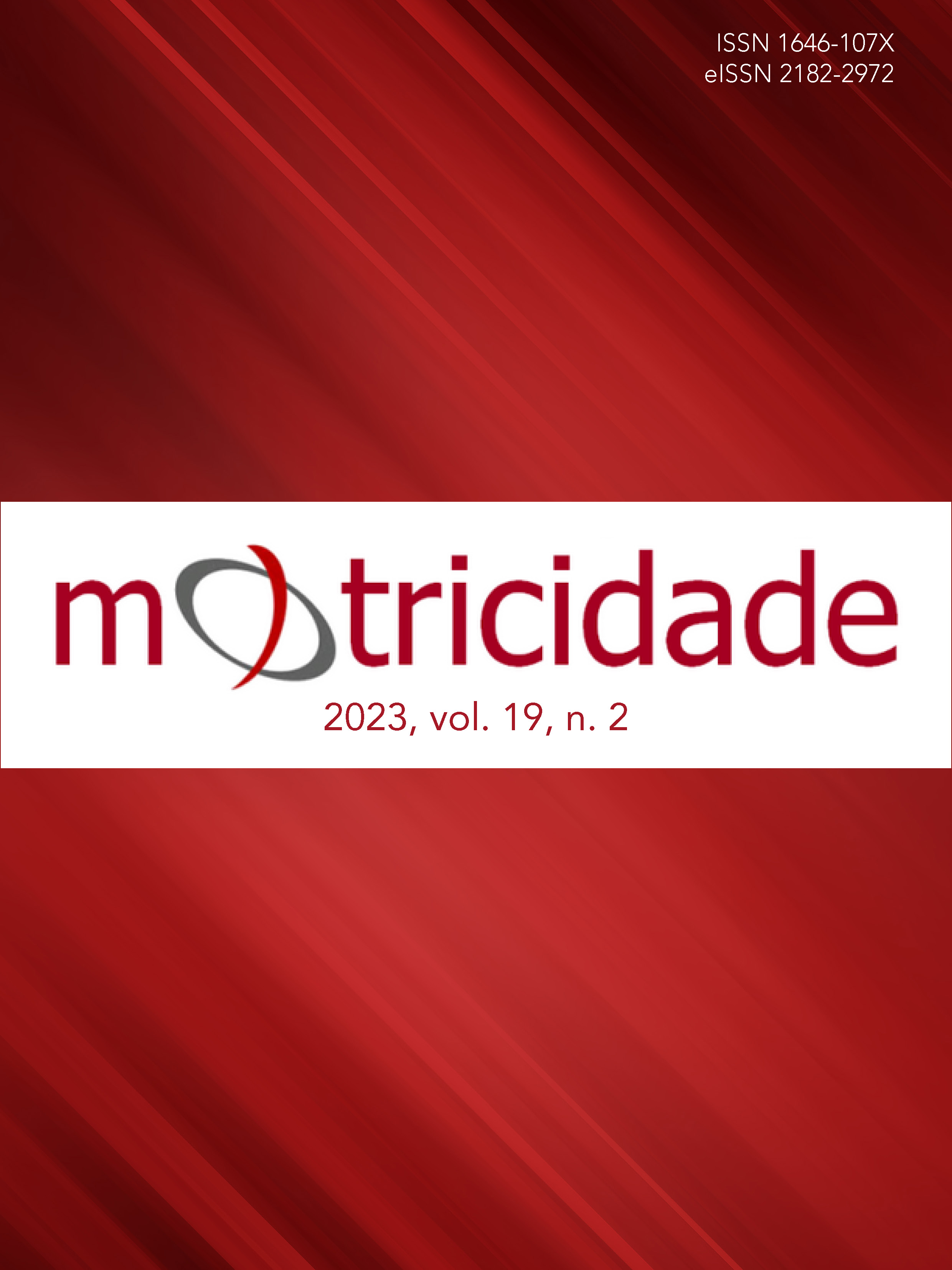Exercício Físico, bem-estar subjetivo, qualidade de vida e sintomatologia depressiva e ansiosa numa amostra de idosos portugueses
DOI:
https://doi.org/10.6063/motricidade.28728Palavras-chave:
Envelhecimento, Exercício Físico, Bem-Estar Subjetivo, Sintomatologia Ansiosa e DepressivaResumo
A preocupação com a qualidade de vida,bem-estar e saúde mental dos idosos tem sido evidente na literatura, assumindo a prática regular de exercício físico um papel fundamental na sua promoção, especialmente tendo em conta o envelhecimento demográfico a que temos assistido. O objetivo deste estudo foi caracterizar os níveis de bem-estar subjetivo (satisfação com a vida e afeto positivo e negativo), qualidade de vida e sintomatologia depressiva e ansiosa numa amostra de idosos portugueses, incluindo uma análise comparativa destas variáveis em função da frequência semanal de prática de Exercício Físico. Foram ainda analisadas as associações entre as variáveis. Para tal, recorreu-se a uma amostra de 92 idosos portugueses (76,55±9.73 anos), 26 (28,3%) do sexo masculino e 66 (71,7%) do sexo feminino. Foram utilizadas as versões portuguesas da “SWLS”, do “PANAS”, bem da “HADS” e da “EUROHIS-QOL-8”. Os principais resultados revelaram a existência de diferenças significativas na variável afeto positivo (p= 0,01) (idosos que não praticavam exercício físico com valores mais reduzidos) e na variável sintomatologia depressiva (p= 0,01) (idosos com maior frequência de prática de exercício físico com menor sintomatologia depressiva). Destacam-se ainda as associações entre as variáveis em estudo (bem-estar, qualidade de vida e sintomatologia depressiva e ansiosa). Este estudo parece assim dar um importante contributo na compreensão do papel da prática regular de exercício físico, não apenas para a saúde física do idoso, mas também para o seu bem-estar e sintomatologia depressiva e ansiosa.
Downloads
Publicado
Edição
Secção
Licença
Os autores dos manuscritos submetidos para publicação deverão ceder, a título integral e permanente, os direitos de autor (copyright) à revista Motricidade e às Edições Sílabas Didáticas. A cedência de direitos de autor permite a publicação e divulgação do artigo em formato impresso ou eletrónico e entrará em vigor a partir da data de aceitação do manuscrito. Os autores concedem, ainda, os direitos para a revista Motricidade utilizar e explorar o respetivo artigo, nomeadamente para licenciar, ceder ou vender o seu conteúdo a bases de resumos/indexação ou outras entidades.
Nos termos da licença “Creative Commons”, os autores poderão reproduzir um número razoável de exemplares para uso pessoal ou profissional, mas sem fins comerciais. Nos termos da licença SHERPA/RoMEO, os autores poderão, ainda, disponibilizar/arquivar uma cópia digital final (versão postprint) do artigo no seu website ou no repositório científico da sua instituição.


